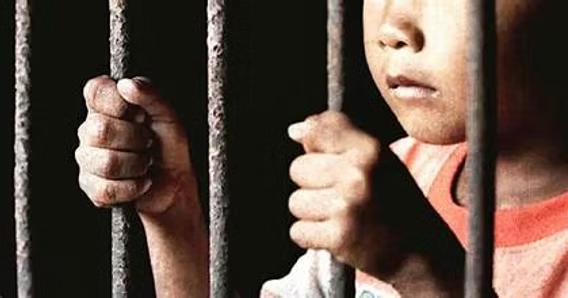Introduction
Globally, juvenile delinquency is a serious problem that impacts communities. It describes the engagement in unlawful or antisocial behaviour by those younger than eighteen. In order to create safer and more supportive environments for young people, it is essential to comprehend the root causes of juvenile delinquency and put effective remedies into place. This article examines the causes of adolescent delinquency and offers some viable remedies to deal with this difficult issue.
Causes of Juvenile Criminality
1. The household setting
The family environment is a major influence on how a child behaves. A number of family-related variables can lead to adolescent delinquency:
– Parental Neglect: When a child feels neglected or abandoned, it can be a trigger for delinquent behaviour, which is often a cry for attention or a coping mechanism. This can happen when there is insufficient supervision, emotional support, or involvement in the child’s life.
– Domestic Violence: When children witness violence in their homes, it can normalise aggressive behaviour and increase the likelihood that they will act out in similar ways elsewhere.
– Broken Families: Divorce or separation might result in behavioural issues and heightened susceptibility to delinquency due to emotional anguish and instability.
2. Aspects of Socioeconomics
Juvenile behaviour is greatly influenced by socioeconomic factors. Delinquency can be caused by variables like unemployment and poverty:
-Poverty: Having trouble making ends meet can make it harder to access extracurricular activities, education, and basic necessities. This makes it more likely that people will turn to criminal activity to make ends meet.
– Unemployment: When young people or members of their family are unable to find work, it can cause dissatisfaction and push some of them to turn to illicit activities in order to survive.
3. Peer Influence
Teenagers are particularly vulnerable to peer pressure, which has the power to significantly alter how they behave:
– Peer Pressure: Youths who associate with delinquent peers may be more likely to participate in criminal activity in an attempt to acquire acceptance or approval from their peers.
– Desire for Acceptance: Adolescents may engage in unlawful or antisocial behaviour out of a desire to fit in and be a part of the group.
4. Difficulties in Education
The educational setting and experiences have an effect on a young person’s likelihood of becoming delinquent:
– School Environment: Students may turn to delinquency as a means of resistance or escape from unpleasant school experiences, such as bullying or academic failure.
– Lack of Engagement: Truancy and disruptive behaviour might result from boredom and disinterest in school-related activities.
5. Misuse of Substances
Alcohol and drug abuse both contribute to and are a result of adolescent delinquency:
– Drug and Alcohol Use: Abusing substances affects judgement and raises the risk of committing crimes.
6. Mental Health Conditions
Delinquent behaviour may be influenced by emotional and psychological disorders:
– Emotional and Psychological Disorders: If left untreated, illnesses including anxiety, depression, and conduct disorders can result in behavioural issues.
Solutions to Juvenile Delinquency
A comprehensive strategy including several stakeholders, such as families, schools, communities, and the judicial system, is needed to address juvenile delinquency. Here are a few workable fixes:
1. Interventions with Families
Delinquency can be greatly decreased by enhancing family relationships and support networks:
– Parental Education: Courses that teach parents how to raise their children well help lessen neglect and strengthen bonds within the family.
-Family counselling: By addressing family issues and offering at-risk youth support, counselling services can help create a more stable home environment.
2. Assistance for Socio-Economy
Support from the socioeconomic system can lessen the circumstances that give rise to delinquency:
– Community Programmes: Families facing financial difficulties might benefit from programmes that provide financial aid, job training, and work possibilities.
– Access to Resources: Vulnerable families can be supported and delinquency can be avoided by guaranteeing access to social services, healthcare, and basic necessities.
3. Community and Peer Involvement
Youth involvement in the community and positive peer pressure can help guide them away from delinquency:
– Mentorship Programmes: Adequately supportive mentors and positive role models can help steer young people towards positive behaviour.
Recreational Activities: Offering extracurricular activities such as athletics, the arts, and other pursuits can help keep young people occupied and away from harmful influences.
4. Reforms in Education
The following educational reforms can target the underlying causes of delinquency:
Programmes for Alternative Education: Schools designed with the needs of young people who are at risk of dropping out can reduce dropout rates and raise academic achievement.
– Anti-Bullying Campaigns: Stricter anti-bullying guidelines can make schools safer and lower the likelihood of delinquent behaviour.
5. Prevention of Substance Abuse
Reducing juvenile delinquency requires preventing and treating substance abuse:
– Education and Awareness: Youth abuse can be avoided by implementing programmes that inform young people about the risks associated with drug and alcohol use.
Rehabilitation Services: Adolescents who have access to counselling and rehabilitation can lessen their delinquent behaviour and conquer addiction.
6. Assistance for Mental Health
Support for mental health can address the psychological elements that lead to delinquency:
– Counselling Services: Youths can better manage their emotional and psychological problems by having access to mental health professionals.
– Early Intervention: Delinquent behaviour can be stopped from getting worse by recognising and addressing mental health issues early on.
Conclusion
In order to effectively handle the complex issue of juvenile delinquency, a comprehensive and coordinated approach is necessary. The prevalence of juvenile delinquency can be decreased and a supportive environment that promotes positive behaviour can be created by society via an awareness of the root causes and the implementation of focused solutions. We can guide young people towards a better and more fruitful future by providing them with family support, socioeconomic support, peer and community participation, educational reforms, substance misuse prevention, and mental health support.
Contributed By: Diwanshi Arya (Intern)

